SUMMARY
This is AI generated summarization, which may have errors. For context, always refer to the full article.

MADRID, Spain – Some of the rebel players from Spain’s World Cup-winning women’s squad who had threatened to boycott the national team in a push to stamp out sexism at the football federation (RFEF) on Tuesday, September 19, reported for training under the threat of being sanctioned.
Misa Rodriguez, Olga Carmona, Oihane Hernandez, Eva Navarro, and Tere Abelleira, who had previously said they would not play for the team until further changes were applied at the Spanish football federation (RFEF), were escorted by police at Madrid’s airport as they headed for a training camp near Valencia.
Local media reported that several other players including Ballon d’Or winner Alexia Putellas boarded a plane from Barcelona for Valencia.
The players were named in the squad ahead of a match against Sweden on Friday by new coach Montse Tome despite signing a statement last week saying they did not feel safe under the current leadership at the RFEF.
Jenni Hermoso, the player at the center of the scandal after RFEF’s then president Luis Rubiales grabbed her head and kissed her on her lips after the World Cup final on August 20, sparking fury over sexist attitudes toward women footballers, on Monday accused the RFEF of trying to divide and manipulate the players.
She said they did this by threatening them with legal and economic consequences if they refused to play.
Should they refuse the call-up, the players could face fines of up 30,000 euros ($32,000) and the suspension of their federation license for two to 15 years, according to Spain’s Sports Act.
Many countries leave the sanctioning of players to FIFA.
Football’s global governing body’s rules state that players who are selected for their national team are obliged to go and their clubs obliged to release them if done with enough warning, said Toni Roca, director of the Sports Law Institute.
Two sources close to the players said they were expecting the whole squad to report in view of the threat of sanctions.
Feeling bad
Asked as she arrived at a hotel near the airport whether she was happy to have been selected for the team, Rodriguez replied: “No.”
As she walked through Barcelona airport, Putellas said she and her teammates felt “bad.” “How else would it be?” she added.
Some of the squad on Monday shared a statement on social media platform X that said the players had told the RFEF they did not want to be considered for selection and that they were “studying the possible legal consequences we are exposed to by the RFEF.”
Hermoso was not in the squad announced on Monday, which included 15 of the 23 World Cup-winning players.
Twenty of those on Monday’s list had signed a statement on Friday saying they were not satisfied with the departure of Rubiales and coach Jorge Vilda and called for more sackings at the federation.
Hermoso, who according to Tome was not selected in order to protect her, on Monday offered her support to tea mates “who have been caught by surprise and forced to react to another unfortunate situation caused by the people who continue to make decisions within the RFEF.”
Victor Francos, head of the state-run national sports agency, will meet the players in Valencia later on Tuesday to learn firsthand about their complaints and try to mediate.
“Yesterday we made ourselves look ridiculous as a country,” Francos told La Sexta TV.
If someone felt uncomfortable and did not want to be part of the squad then it should be “normal” to let them make that choice without a sanction, he told state broadcaster TVE.
On Monday, Francos said the government would have no option but to apply the sanctions as stipulated in the law.
Spain is set to debut in the Women’s Nations League against Sweden in Gothenburg on Friday before playing against Switzerland in Cordoba on September 26. The Nations League will determine which teams from Europe qualify for the 2024 Paris Olympic Games.
Sweden’s women’s team will support their Spain counterparts if they decide to boycott the fixture, midfielder Filippa Angeldahl said on Tuesday.
The government supports the players’ push for changes in the RFEF but also wants Spain to qualify for the Olympic Games, spokesperson Isabel Rodriguez told a press conference.
“We want there to be changes, for them to be quick, for the confidence of the players to be restored and, most importantly, what we want is to see them play and see them win,” she said. – Rappler.com
Add a comment
How does this make you feel?
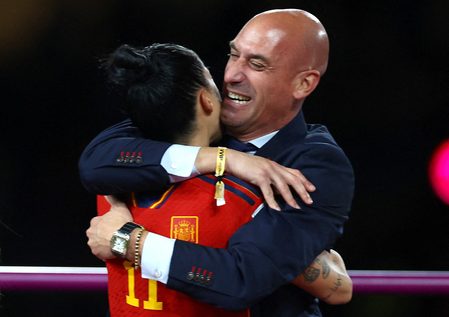





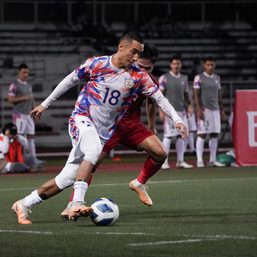
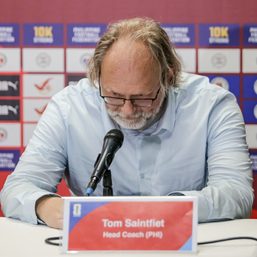

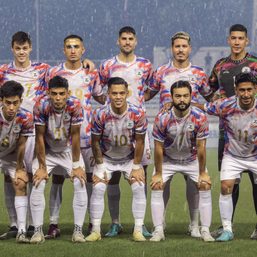
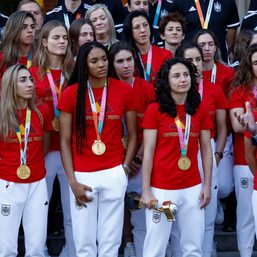




There are no comments yet. Add your comment to start the conversation.